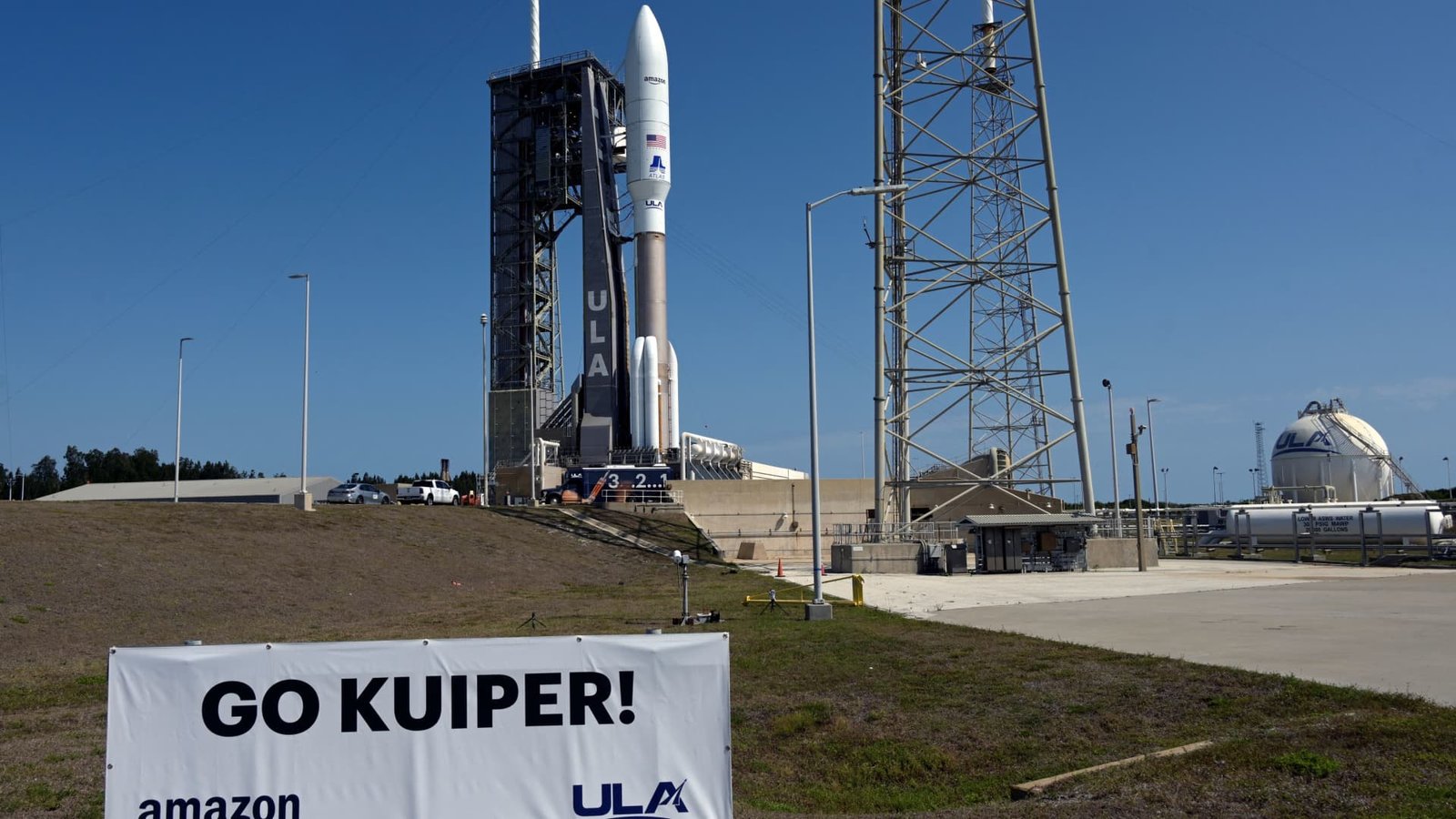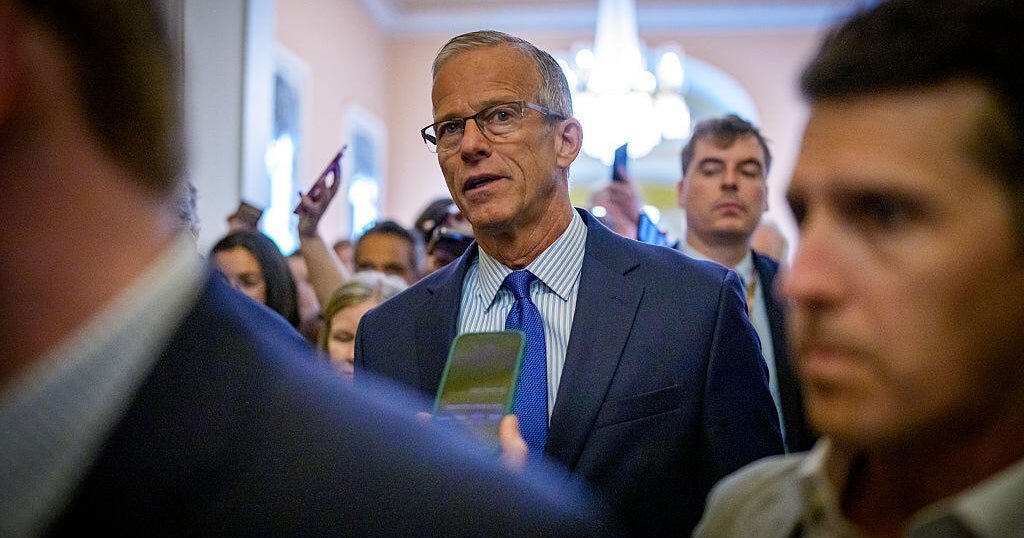A United Launch Alliance Atlas V rocket is shown on its launch pad carrying Amazon’s Project Kuiper internet network satellites as the vehicle is prepared for launch at the Cape Canaveral Space Force Station in Cape Canaveral, Florida, U.S., April 28, 2025.
Steve Nesius | Reuters
United Launch Alliance on Monday was forced to delay the second flight carrying a batch of Amazon‘s Project Kuiper internet satellites because of a problem with the rocket booster.
With roughly 30 minutes left in the countdown, ULA announced it was scrubbing the launch due to an issue with “an elevated purge temperature” within its Atlas V rocket’s booster engine. The company said it will provide a new launch date at a later point.
“Possible issue with a GN2 purge line that cannot be resolved inside the count,” ULA CEO Tory Bruno said in a post on Bluesky. “We will need to stand down for today. We’ll sort it and be back.”
The launch from Florida’s Space Coast had been set for last Friday, but was rescheduled to Monday at 1:25 p.m. ET due to inclement weather.
Amazon in April successfully sent up 27 Kuiper internet satellites into low Earth orbit, a region of space that’s within 1,200 miles of the Earth’s surface. The second voyage will send “another 27 satellites into orbit, bringing our total constellation size to 54 satellites,” Amazon said in a blog post.
Kuiper is the latest entrant in the burgeoning satellite internet industry, which aims to beam high-speed internet to the ground from orbit. The industry is currently dominated by Elon Musk’s Space X, which operates Starlink. Other competitors include SoftBank-backed OneWeb and Viasat.
Amazon is targeting a constellation of more than 3,000 satellites. The company has to meet a Federal Communications Commission deadline to launch half of its total constellation, or 1,618 satellites, by July 2026.
WATCH: Amazon Web Services CEO: Lots of opportunity to expand infrastructure globally
#Amazon #Kuiper #satellite #launch #delayed #ULA #due #rocket #issue



